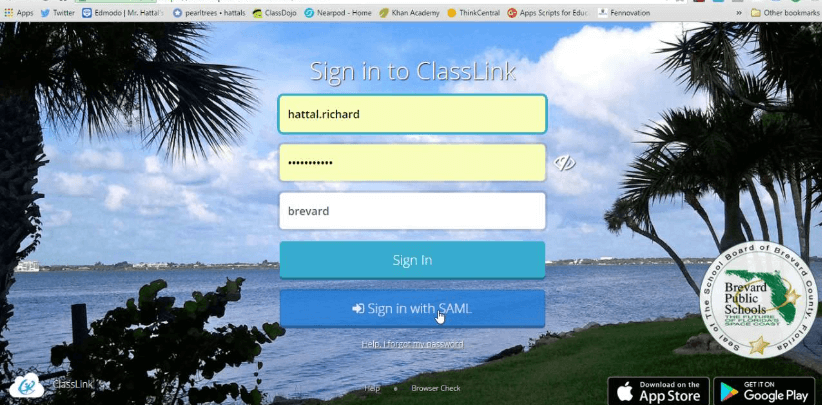Table of Contents
What seemed unthinkable a few years ago is now a reality: the whole world is constantly connected through electronic devices – and even the presence of children on the internet has become frequent.
In recent years, technology has advanced amazingly and today we can access information quickly with just a few clicks on a screen.
Despite being extremely advantageous, this technology can also be very dangerous, especially when we talk about young people connected to the web. With so much information easily accessible and the possibility of talking to people from all over the planet, little ones can be exposed to a series of risks.
But after all, what are these threats and how to protect children from these problems? Thinking about these doubts, we prepared this post with important information on the subject. Interested? So, read on and check it out!
What risks are children exposed to when using the internet?
Children are exposed to several risks when using the World Wide Web. Next, we will talk about the main ones, explaining a little about each of them. Follow up!
Cyberbullying
In recent years, bullying suffered by children in schools has become an essential topic of discussion among parents, educators, and even the governments of different nations. This practice is known to cause damage to victims’ self-esteem, as well as other serious problems.

Although the schoolyard is the most common setting for this type of situation, it does not mean it cannot occur in other environments. The online space, for example, is one of the places where bullying is most practiced.
This is mainly due to the possibility of anonymity and lack of control. In addition, the impersonality of the situation contributes to the negative effects, as the aggressor cannot observe his victims’ reactions and is unaware of how devastating his attitudes are.
Sexual Predators
The possibility of connecting and interacting with different people is one of the main advantages of the internet, which has reduced geographical distances and facilitated society’s relationships. However, this is also a pretty serious problem when it comes to children and sexual predators.

Unfortunately, cases of sexual abuse on the internet continue to grow. Using the network opens doors to a completely new world, where young people can communicate with strangers.
In addition, criminals often hide behind false identities, so-called fakes. This practice is used by them to pretend to be the same age as the victim and attract her without generating suspicion, first creating bonds of friendship and trust.
Pornography
Most parents or guardians of young children fear that some kind of pornography will accidentally appear on the screen while the little one is using the computer. While this isn’t all that uncommon, it’s important to keep in mind that they often go in search of this type of material as well.
That doesn’t mean, of course, that they know exactly what they’re looking for. However, curiosity is an inherent characteristic of children and human beings, which can lead them to have doubts about subjects they have overheard somewhere.
In addition, children may be exposed to pornographic material when talking to unknown and malicious people, who share this type of content on social media.
Harmful Exposure
Nowadays, access to tools that record videos and take pictures is very comprehensive. After all, cameras are everywhere, on cell phones, computers and tablets, making it easy for any child to record their daily lives.

In addition to the ease of registration, we must also mention the simplicity with which this material is uploaded on the internet. A good example is the channels run by children on YouTube or the various memes involving minors that circulate on the web.
Therefore, this material can be used for people to bully this child, in addition to generating future embarrassment. It’s important to remember that once something is online, it’s rarely taken down, so you can’t be too careful.
Disclosure of personal data
Finally, we will mention the danger of disclosing personal data to strangers. This is one of the main risks, as children—especially very young ones—have no sense of boundaries and don’t know that certain things shouldn’t be said to strangers.
Therefore, it is very common to see young people posting detailed accounts of their days and disclosing important information, such as their personal phone number or even their home address.
In addition, the images posted can be very revealing, containing information such as the school the children attend (because of the uniforms) and other data that must remain safe.
How to protect children on the internet?
As we can see, the internet can be a dangerous environment for children. Therefore, it is essential that parents and guardians participate in the process of using this tool, making it as safe as possible and allowing them to enjoy its numerous benefits without major problems.

That’s why we’ve separated some tips to make your work a little simpler. Check each one of them!
Monitor usage closely
The first step in keeping children safe on the internet is closely monitoring usage. However, it is important to note that monitoring is by no means synonymous with an invasion of privacy.
So always keep an eye on the content your child consumes online, especially for very young children. Leave the computer in a busy area, such as the living room, and always be present.
In addition, it is valid to make it clear to the child that you are there to clear any doubts. This kind of attitude generates complicity and shows that she can count on you if she sees something strange.
Also Read This: Protecting Your Online Identity And Privacy: Why It Is Essential?
Install security filters
Some extensions, software and applications work like a sieve on the internet, letting only relevant information pass and retaining those considered harmful to children.
Therefore, installing filters is recommended to considerably reduce the amount of harmful content that your children can access on the internet, as they block certain keywords or websites.
However, it is still important to keep an eye out. The reason for this is that some sites manage to bypass the filter, avoiding the blocking made by these programs.
Set limits on usage
The internet can be a very interesting tool. With it, we get new information quickly and can acquire knowledge in a much simpler way. Therefore, she is a great supporter in the studies and development of children.
In addition, it can be used recreationally, reducing stress and engaging the child in various activities. With it, the little ones can discover new passions and other cultures, developing skills, such as self- knowledge and even empathy .
However, its unbridled use can have the opposite effect. Therefore, impose limits and allow its use preferably in moments you are around. Thus, it is much easier to monitor what your child consumes through the web.
Also Read This: 3 Tips When Traveling With Young Children
Guide the Child
Dialogue is the best form of prevention for various problems and risks that children suffer on the internet. Therefore, it is important to talk openly and warn about some main risks, always using language appropriate to their age group.
Talk about the danger of unnecessary exposure, and revealing personal data and explain that, while making new friends over the internet is a good practice, it is necessary to be careful with the content of conversations. Make it clear that some issues are not appropriate and that it is essential for her to let you know if they arise.
Leaving everything on clean plates, it is much easier to keep the dialogue alive and make the child confide in any problems to you.















